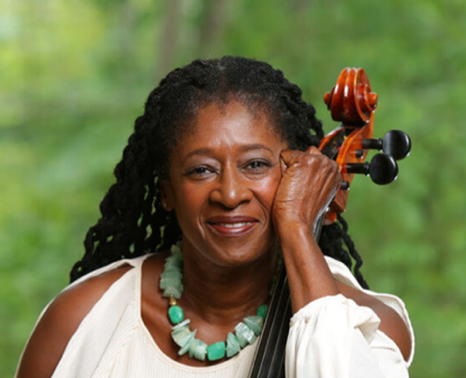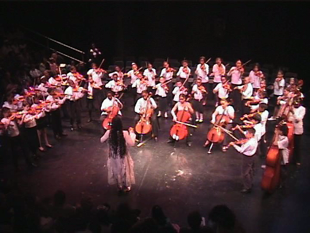by Emmy Hensley

Commissioned by CityMusic Cleveland, her string quartet We the People will be premiered on Friday, November 18 at 7:00 pm at Praxis Fiber Workshop by violinists Susan Britton and Eunho Kim, violist Yael Senamaud-Cohen, and cellist Trevor Kazarian.
The free concert, titled “Perspectives for String Quartet,” reflects on the theme of Justice, Equality, and Freedom. The program also includes Arvo Pärt’s Psalom, Jerod Impichchaachaaha’ Tate’s Pisachi (Reveal): Six Epitomes for String Quartet, and Maurice Ravel’s String Quartet in F.
Writing We the People has served as an opportunity for Dixon to reevaluate what justice, equality, and freedom have meant throughout history. “Everything is a matter of opinion, and there are two sides to each coin,” she said. “When I started thinking about the theme, I looked into the Constitution’s Preamble. I read about the intent of setting up this particular democracy, as well as the interpretation of it by the people who founded it — and those who were not included in it. I feel that it’s a great time to have dialogue and to listen to the side of so many people of color and women — all the people that haven’t had a chance — and what they have to say about these topics.”
The composition that emerged has an intensity to it — and Dixon admitted that hearing something so intense can be unnerving. She connected her music to past experiences. “Life is not fair. In some cases, it’s very tense and horrific. I feel at this time, we all need to think about and realize what we’re doing. Some things we do cause despair for other people, sometimes we cause them to lack hope.”
We the People is based on a whole-tone scale and features a melodic structure that Dixon described as “conversations between all four players who all have something to say, weaving in and out of a dialogue.” She drew from traditional compositional techniques to elaborate on this concept. “One of the movements is a call and response, which was very typically used especially in African American music during the days of slavery. A leader would say something, and the congregation would answer.”
Dixon’s background in composition began long before her formal training in cello. “I was involved in music at a very young age, mostly by ear, listening to the music from my church and playing piano, making little arrangements for my siblings and me to sing at home.” Growing up, she and her friends would get string quartet sheet music from the library to play together on weekends. Eventually, the group began playing local events around New York that were organized by their parents.
“People started asking if we could play things like, for example, One Hand, One Heart by Leonard Bernstein” — her first arrangement. “As the decades went by, I did that more and more, and I got better and better at it.”

She also wrote a piece for the students to play and gave workshops throughout the school year. And at her last Carnegie Hall concert of the season, the children performed that work. “One of the things the kids don’t really have a lot of is hope,” Dixon said. “To see them accomplish playing the piece on the level that they did was exciting to see. They were just marvelous.”
Speaking about the importance of bringing art to audiences, Dixon weighed in on how wonderful it has been for live music to return to the concert hall. And she is eager for the premiere of We the People by CityMusic Cleveland. “It’s been a rough couple of years — both on the part of artists not being able to perform music, but also on the public, who desperately needed to get out and experience art. It’s great to be back in full swing.”
Click here for more information.
Published on ClevelandClassical.com November 15, 2022.
Click here for a printable copy of this article



